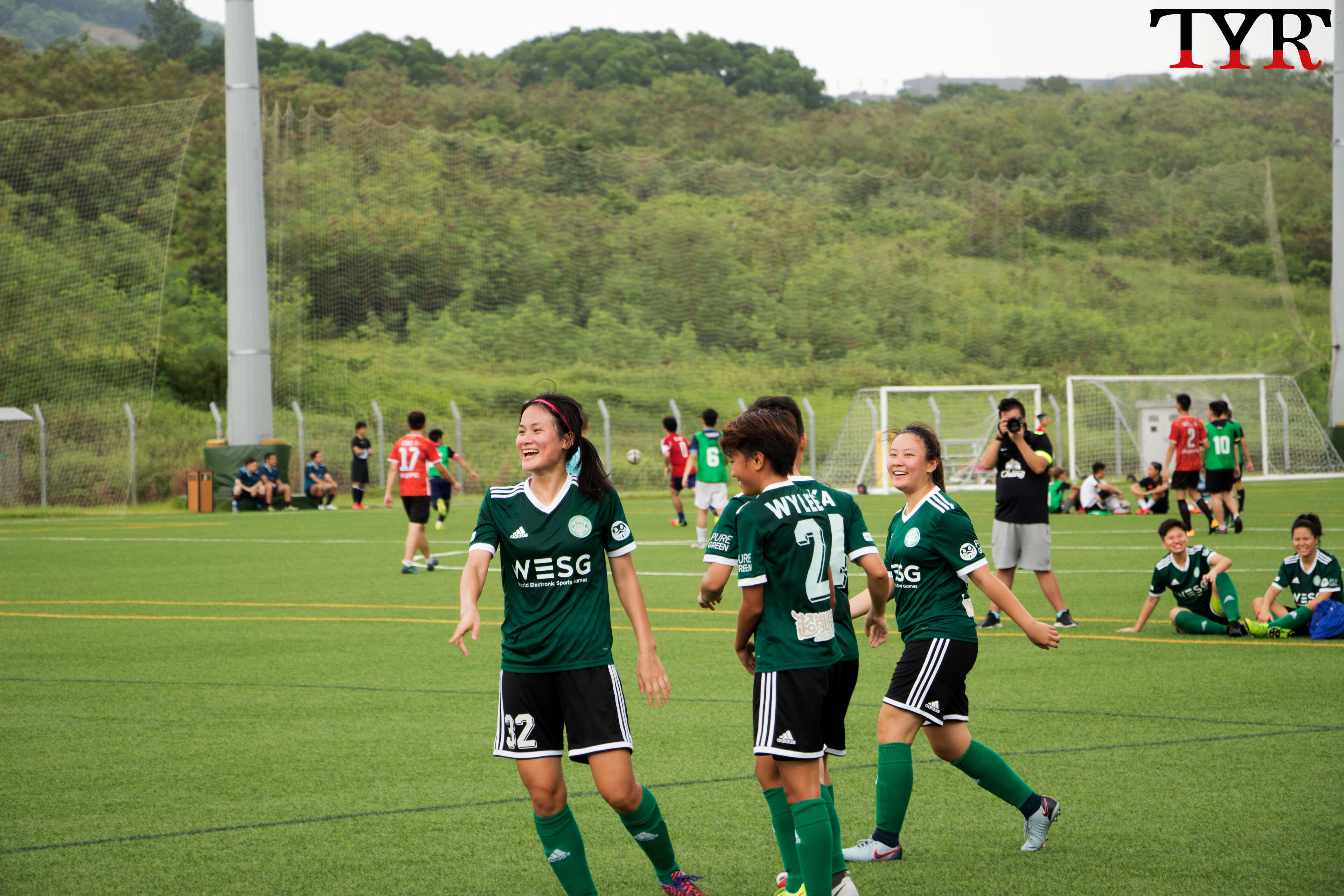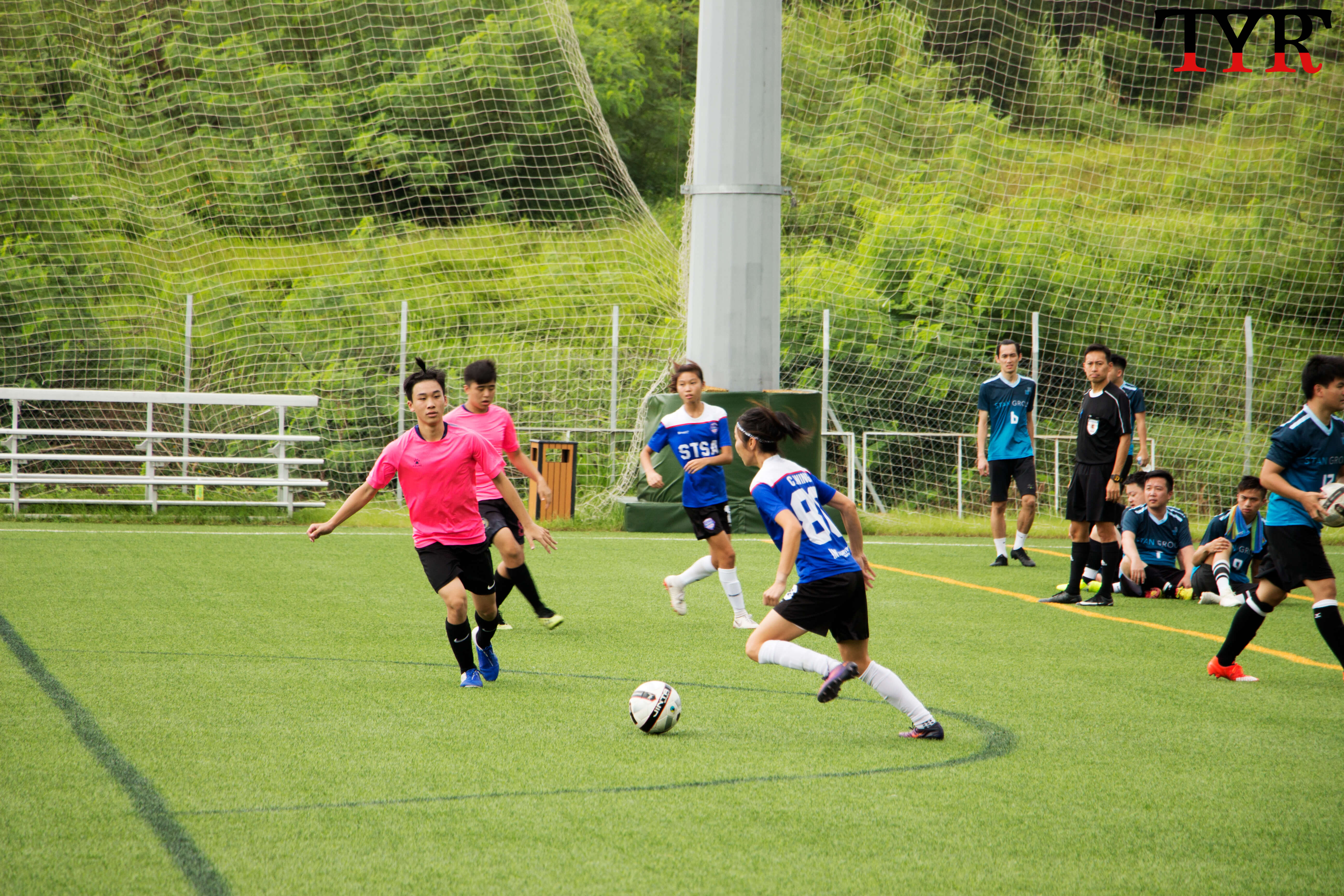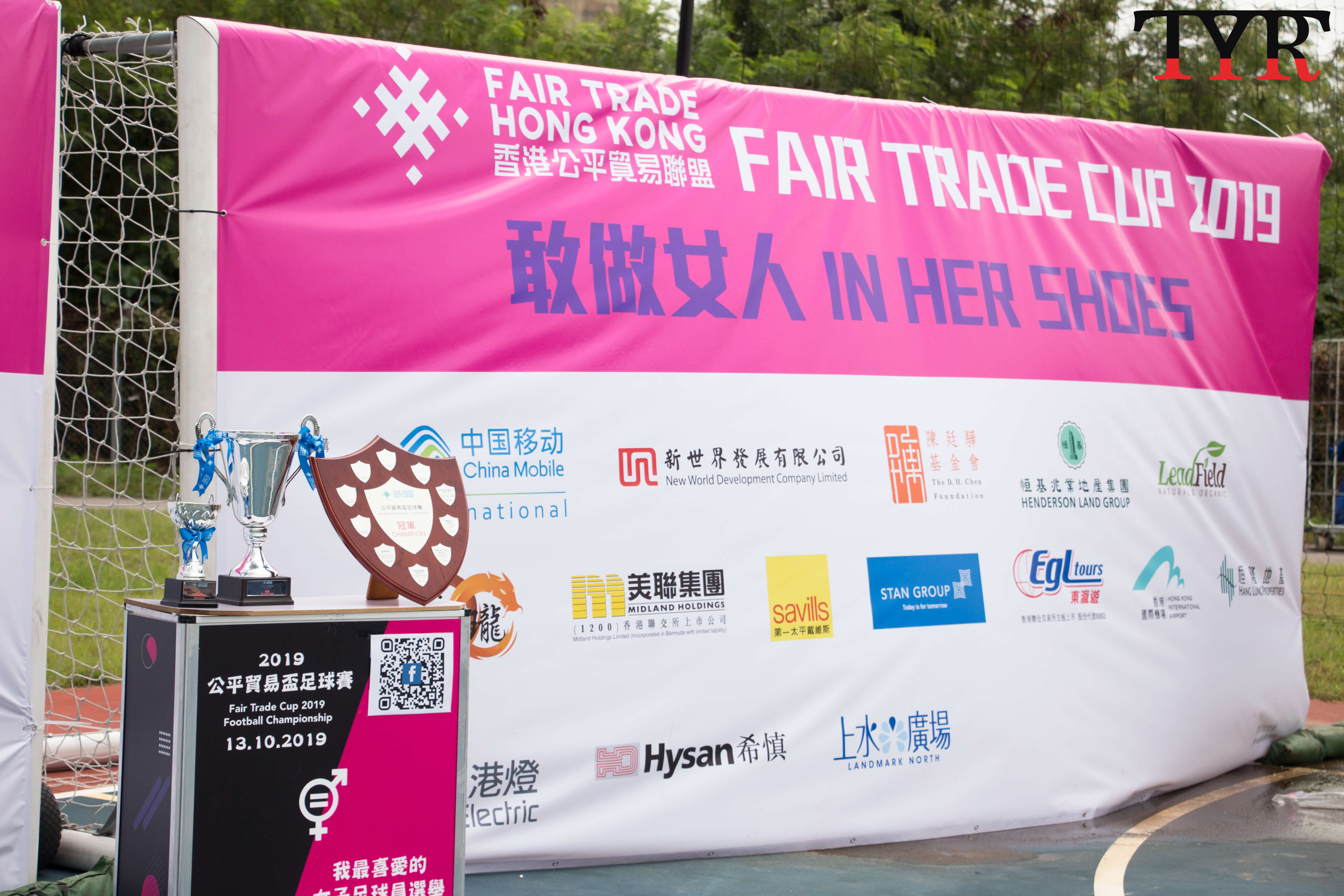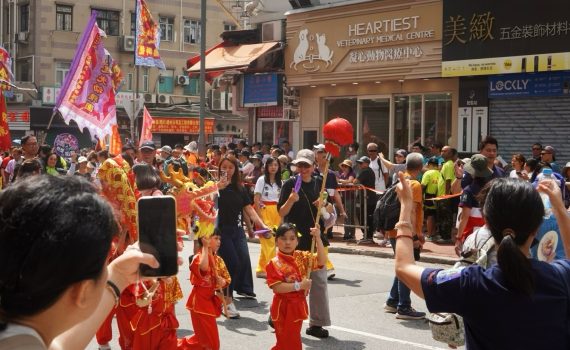
She works and studies by day, but at night, she puts on a new identity. Unlike the professional male players, as a female soccer player, Ma Chak Shun, 23, trains with her soccer team after sundown.
Ms. Ma is involved with the Hong Kong women's national football team and a local club named Happy Valley Athletic Association Women. Yet, Ms.Ma is still not considered a professional player.
“Males can play professional soccer, they can earn money by playing soccer. But females can't," she said.
The trend of more females joined the sport in recent years is apparent. According to Legislative Council document, as of the interim review in 2018, there are 3,140 women in Hong Kong involved in various women's soccer programs held by Hong Kong Football Association, which increased by more than 70% compared with last year.
As the group is getting bigger, local female players say they still have to face diverse difficulties in their career because they are on the way seeking for the same rights and treatment same as male players.
No professional soccer means no salary. Male players' team participating in Hong Kong Premier League can make money with their training expenses paid and salary monthly.
There is no professional league for women's soccer in Hong Kong, so female players will not get paid. Most of them treat soccer as a hobby and have other full-time jobs.
"We can just seek it for fun, for leisure and for our dream," said Chan Tsz Ching, a student soccer player in Hong Kong Baptist University.

HKBU provides funding for all University sports teams, and they also have sponsors to cover the expenses of overseas training or matches.
Clubs out of school are not as lucky as school teams. Hong Kong Football Association sponsors Hong Kong team but not clubs, so they need to find their own sponsorship.
According to Ma Chak Shun, when it comes to overseas activities or training, if they failed to get sponsors, some club's chairman will pay for the expenses for players. But if the chairman doesn't pay, players need to gather up the expenses among themselves.
Ms. Ma thinks she is fortunate as her coach and captain always thinks for the players. Last year, her coach successfully got travelling expenses which are used for their transportation for far away matches. Players are granted 500 Hong Kong dollars for each tournament as a bonus.
"We think it's progress, even if there is still a long way to go from the professionalisation of women's soccer, we feel that we are moving towards it step by step," as far as she knows, other clubs does not have the welfare.
The focus in Hong Kong, like other sports is to develop male teams, women’s teams encounters the difficulty in book the pitch for regular trainings.
Although Jockey Club HKFA Football Training Centre started operation in 2018 and Ms. Ma said it's easier for women's team to book, since the centre located in Tseung Kwan O which is far away from the urban area, the female teams still face difficulties. They need to compete with public for booking the pitches owned by Leisure and Cultural Service Department in downtown.
Busy schedules of team members and the pitches shortage result in the low frequency of training. Women's teams can only train two nights per week while men's teams can train with more flexibility in their home field which they do not need to apply for the space.
According to Hong Kong Football Association Five-Year Strategic Plan, HKFA will work with partners to ensure that women's football receives regular and appropriate training facilities, but they didn't provide specific strategies.
Prentice Koo, executive director of Fair Trade Hong Kong, said there is also a difficulty in perception for female soccer players. In Hong Kong, people use a Chinese phrase "Group A feet" meaning that the premier level players usually have the stout legs, to play jokes on women's body shape.
"It's a kind of hesitation for especially young girls when they consider which sport to play, that may cause some obstacles for them to develop," said Mr. Koo.

"We decided to hold this tournament to give a chance for all the female soccer players in Hong Kong to interact with the soccer lovers, trying to help them promote their sport." Although this tournament can only involve 300-400 people, Mr. Koo hopes they can help to develop some dynamics in the soccer scene.
Ms. Ma said she has witnessed that the social acceptance continues to grow as a result ongoing focus of women's soccer. "In the past, the promotion was not enough, and the scale of the women's soccer is smaller. But now thanks to the publicity, more and more people began to identify socially with women's soccer."
Ma Chak Shun thinks that in order to develop women’s soccer better, it should start from Physical Education classes in school.
Mr. Koo also saw the crux of the matter, "the numbers of players is not enough in youth level," he said. "If they don't have many players, their league, their tournaments won’t be popular. They can't ensure enough matches."
However, some Hong Kong people value academic much on the other hand, many parents think their children should study seriously and go to university, and then get a steady job. For them, playing soccer is unreasonable.
When Chan Tsz Ching was in her secondary school, she put in a lot of effort to study so that she can squeeze in time to play soccer.
"The kids in primary have a lot of homework, they don't have much time to go training after school," she thinks time management is one of the main problems for youth to play soccer.
Many female players have the dream of being professional. But currently, the only way to achieve their dream is to go abroad to other countries which recognises professional women's league.
"My dream is to become a full-time player. Even if just for one or two years, I want to have the experience," said Ms. Ma.
《The Young Reporter》
The Young Reporter (TYR) started as a newspaper in 1969. Today, it is published across multiple media platforms and updated constantly to bring the latest news and analyses to its readers.

A plate goes down your gullet to fight plastic waste

University student dies after falling from a high place near police operations




Comments